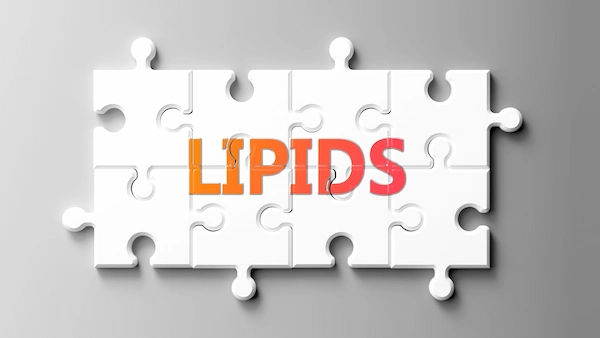All About High Cholesterol: Understanding, Managing, And Preventing This Common Health Issue
Learn about high cholesterol, its causes, symptoms, and how to manage and prevent this common health issue. Discover tips for maintaining healthy cholesterol levels to reduce the risk of heart disease and stroke.

Written by
Last updated on 13th Jan, 2026
Introduction
High cholesterol is a condition that affects millions of people worldwide and is a significant risk factor for heart disease, stroke, and other cardiovascular problems. Despite its prevalence, many people are not fully aware of what high cholesterol is, its causes, symptoms, and how to manage and prevent it. This detailed guide aims to provide comprehensive information about high cholesterol, helping you make informed decisions about your health.
What is Cholesterol?
Cholesterol is a waxy, fat-like substance that is found in every cell of the body. It plays a crucial role in various physiological processes and is essential for maintaining overall health. Despite its reputation, cholesterol is not inherently bad. In fact, the body needs cholesterol to build cell membranes, produce hormones such as estrogen and testosterone, synthesise vitamin D, and create bile acids that help digest fat.
Cholesterol is transported through the bloodstream in molecules known as lipoproteins, which are made up of fat (lipid) on the inside and proteins on the outside. There are two main types of lipoproteins that carry cholesterol:
Low-Density Lipoprotein (LDL): Often referred to as "bad" cholesterol, LDL carries cholesterol from the liver to the rest of the body. When there is too much LDL cholesterol in the blood, it can accumulate on the walls of arteries, forming plaques. These plaques can narrow and harden the arteries, a condition known as atherosclerosis, which increases the risk of heart disease and stroke.
High-Density Lipoprotein (HDL): Known as "good" cholesterol, HDL carries cholesterol away from the arteries and back to the liver, where it is processed and removed from the body. Higher levels of HDL cholesterol are associated with a lower risk of cardiovascular disease because HDL helps reduce the accumulation of cholesterol in the arteries.
Causes of High Cholesterol
High cholesterol can be caused by a combination of genetic and lifestyle factors. Here are some common causes:
Unhealthy Diet: Consuming foods high in saturated fats, trans fats, and cholesterol can increase your LDL cholesterol levels. Foods like red meat, full-fat dairy products, processed foods, and fried foods are major culprits.
Lack of Physical Activity: A sedentary lifestyle can lead to weight gain and higher cholesterol levels. Regular physical activity helps raise HDL cholesterol and lower LDL cholesterol.
Obesity: Excess body weight, particularly around the abdomen, is linked to higher cholesterol levels and an increased risk of cardiovascular disease.
Smoking: Smoking can lower HDL cholesterol and damage the lining of your arteries, making them more susceptible to plaque buildup.
Genetics: Familial hypercholesterolemia is a genetic disorder that causes very high levels of LDL cholesterol. If you have a family history of high cholesterol, you may be at a higher risk.
Age and Gender: Cholesterol levels tend to rise with age. Before menopause, women usually have lower total cholesterol levels than men of the same age. However, after menopause, women's LDL cholesterol levels often increase.
Symptoms of High Cholesterol
One of the reasons high cholesterol is so dangerous is that it usually doesn't cause any symptoms. Many people are unaware they have high cholesterol until they have a blood test or experience a serious health event like a heart attack or stroke. Regular screening is essential to detect high cholesterol early and manage it effectively.
Risks of High Cholesterol
High cholesterol can lead to the buildup of plaque in your arteries, a condition known as atherosclerosis. This can narrow and harden the arteries, reducing blood flow and increasing the risk of cardiovascular problems, including:
Coronary Artery Disease (CAD): Plaque buildup in the coronary arteries can lead to chest pain (angina) and heart attacks.
Stroke: Reduced blood flow to the brain due to blocked or narrowed arteries can cause a stroke.
Peripheral Artery Disease (PAD): Atherosclerosis can also affect arteries in your limbs, leading to pain and mobility issues.
High Blood Pressure: Plaque buildup can increase blood pressure, further straining your heart and arteries.
Diagnosing High Cholesterol
High cholesterol is typically diagnosed through a blood test called a lipid panel, which measures your levels of LDL, HDL, total cholesterol, and triglycerides (another type of fat in the blood). It's recommended that adults have their cholesterol levels checked at least once every five years, starting at age 20. If you have risk factors for heart disease, you may need more frequent testing.
Managing High Cholesterol
Managing high cholesterol often involves lifestyle changes and, in some cases, medication. Here are some effective strategies:
Healthy Diet: Adopting a heart-healthy diet is one of the most effective ways to manage high cholesterol. Focus on:
Reducing Saturated and Trans Fats: Limit foods high in saturated fats (e.g., red meat, full-fat dairy) and avoid trans fats (e.g., hydrogenated oils found in some processed foods).
Eating Fiber-Rich Foods: Foods high in soluble fibre, such as oats, beans, lentils, fruits, and vegetables, can help lower LDL cholesterol.
Including Healthy Fats: Opt for unsaturated fats found in olive oil, avocados, nuts, and fatty fish (e.g., salmon, mackerel).
Regular Exercise: Aim for at least 30 minutes of moderate-intensity exercise most days of the week. Activities like brisk walking, jogging, swimming, and cycling can help raise HDL cholesterol and lower LDL cholesterol.
Weight Management: Losing excess weight, especially around the abdomen, can help lower cholesterol levels and reduce the risk of cardiovascular disease.
Quitting Smoking: If you smoke, quitting can improve your HDL cholesterol levels and overall heart health. Seek support from healthcare professionals, support groups, or smoking cessation programs.
Medications: In some cases, lifestyle changes alone may not be enough to lower cholesterol levels. Your doctor may prescribe medications such as:
Statins: These drugs block a substance your liver needs to make cholesterol, reducing LDL levels.
Bile Acid Sequestrants: These medications bind to bile acids, prompting the liver to use excess cholesterol to make more bile acids, thus lowering cholesterol levels.
Cholesterol Absorption Inhibitors: These drugs limit the absorption of dietary cholesterol from the intestines.
Alternative Treatments: For those interested in exploring alternative treatments for managing high cholesterol, several options are available. Dietary supplements such as omega-3 fatty acids, flaxseed, and garlic have shown potential in supporting heart health and lowering cholesterol levels. Additionally, plant sterols and stanols, naturally occurring substances found in various fruits, vegetables, and grains, can help reduce the absorption of cholesterol in the intestines.
However, it's crucial to consult with a healthcare provider before incorporating any alternative therapies into your routine. They can provide personalized advice and ensure that these treatments are safe and effective for your specific health needs.
Preventing High Cholesterol
Taking proactive steps to prevent high cholesterol is essential for maintaining heart health and overall well-being. Here are some effective strategies to keep your cholesterol levels in check:
Healthy Eating Habits
Adopting a balanced diet is crucial. Focus on incorporating plenty of fruits, vegetables, whole grains, and lean proteins into your meals. It's also important to limit your intake of saturated fats, trans fats, cholesterol, and added sugars. Opt for healthier cooking methods like grilling, steaming, or baking instead of frying.
Regular Physical Activity
Regular exercise is key to maintaining healthy cholesterol levels. Aim for at least 30 minutes of moderate physical activity most days of the week. Activities such as brisk walking, jogging, swimming, and cycling can help boost your HDL (good) cholesterol and lower your LDL (bad) cholesterol.
Maintain a Healthy Weight
Achieving and maintaining a healthy weight through a combination of a balanced diet and regular exercise can have a significant impact on your cholesterol levels. If you're overweight, even a small amount of weight loss can help improve your cholesterol profile.
Avoid Tobacco Smoke
If you smoke, quitting is one of the best things you can do for your heart health. Smoking lowers HDL cholesterol and damages the lining of your arteries, making them more susceptible to plaque buildup. Avoiding exposure to secondhand smoke is also important.
Monitor Cholesterol Levels
Regularly monitoring your cholesterol levels through blood tests is crucial, especially if you have risk factors such as a family history of high cholesterol, heart disease, or diabetes. Early detection allows for timely intervention and management.
Conclusion
High cholesterol is a major risk factor for cardiovascular disease, but the good news is that it can be effectively managed and prevented through lifestyle modifications and, if necessary, medication. Embracing a heart-healthy lifestyle can help you lower your cholesterol levels, minimise the risk of heart disease and stroke, and enhance your overall health and well-being. Regular check-ups with your healthcare provider are crucial to monitor your cholesterol levels and make any necessary adjustments to your treatment plan. By taking proactive steps today, you can pave the way for a healthier, longer life.
Consult Top Cardiologist
Consult Top Cardiologist

Dr. Tripti Deb
Cardiologist
40 Years • MBBS, MD, DM, FACC, FESC
Hyderabad
Apollo Hospitals Jubilee Hills, Hyderabad

Dr. Anand Ravi
General Physician
2 Years • MBBS
Bengaluru
PRESTIGE SHANTHINIKETAN - SOCIETY CLINIC, Bengaluru
Dr Moytree Baruah
Cardiologist
10 Years • MBBS, PGDCC
Guwahati
Apollo Clinic Guwahati, Assam, Guwahati

Dr. Zulkarnain
General Physician
2 Years • MBBS, PGDM, FFM
Bengaluru
PRESTIGE SHANTHINIKETAN - SOCIETY CLINIC, Bengaluru
Dr K.n Reddy
Cardiologist
45 Years • MBBS,SVMIS,DM-CMC,MD
Chennai
Apollo Speciality Hospitals Vanagaram, Chennai
(225+ Patients)



